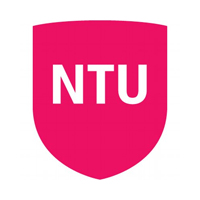fees waived
Esports Production, BSc (Hons)
Nottingham Trent University, United Kingdom
Ranking in UK
Communication and Media Studies
Journalism
Communication and Media Studies
Costs
food & rent S$17.1k / year
Entry requirements
Scholarships
Limited quantity
Limited quantity
Limited quantity
Information
Code
Intakes
Website (External)
Programmes
Information
Duration
2029
This course is presently delivered by Confetti, with teaching transitioning to the Nottingham School of Art & Design (NSA&D) in September 2025; however, course content and learning outcomes will remain unchanged. Esports represents a thriving global industry valued at $1.1 billion, ranking as the fourth-largest sport worldwide. It encompasses live events production, broadcasting, streaming, and content creation, involving stakeholders such as professional players, game publishers, event specialists, platforms like Twitch and YouTube, and sponsors.At Confetti, students will explore the esports sector as a global business, including the principles of competitive gaming and factors contributing to successful games. Emphasis is placed on production and technology, equipping learners with skills to apply relevant technologies for esports events. Drawing on over 25 years of expertise in creative technologies, the program leverages industry contacts and facilities like Confetti X for hands-on experience. Year 1 modules include Global Esports Industry (40 credits), focusing on business and social trends; Principles of Esports Games (40 credits), covering game mechanics; and Production and Technology (40 credits), emphasizing broadcast skills.
Here's an overview of the modules in Year 1. Global Esports Industry (40 credits) Esports is now one of the most significant sectors within the global games industry. The growth of this market sector has led to new business opportunities, emerging technologies and social trends. This module introduces you to the technological, business-focussed and social factors that are related to the development of esports through academic research and analysis. This knowledge and understanding is vitally important for the development of new business concepts, products or services related to esports. Principles of Esports Games (40 credits) Esports has grown ten-fold in just over five years to a staggering global business. The games themselves have engaged players and viewers alike with developers and publishers always searching for the next big, competitive product. This module focuses on the mechanics and conventions of competitive games design, allowing you to conceptualise your own ideas in relation to competitive esports games. This knowledge and understanding of how games mechanically work and why we play them is essential to game design, and will support the conceptualisation of/within your own game portfolio. Production and Technology (40 credits) Being able to understand the importance of technology in esports broadcasting is essential for those working in the esports events industry. This module will allow you to explore the technical theory involved in broadcast technology for esports, whilst developing your practical skills working with equipment.
A local representative of Nottingham Trent University in Singapore is available online to assist you with enquiries about this course.

